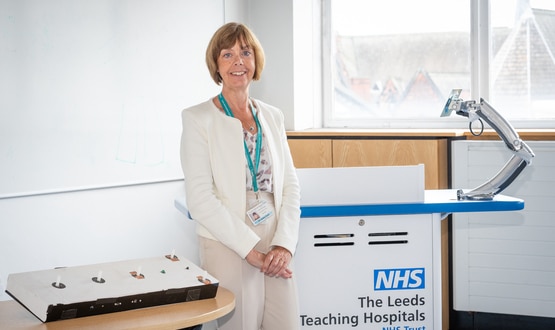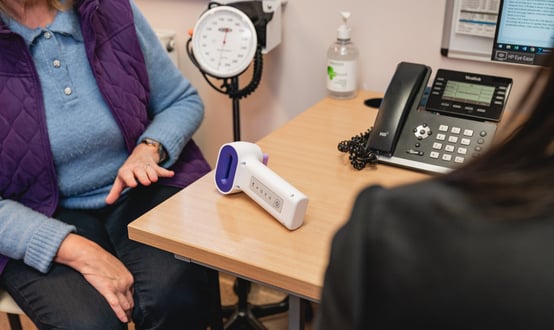Leeds Teaching Hospitals develops motion detection tool for MS
- 26 September 2023

Clinicians and researchers at Leeds Teaching Hospitals NHS Trust have developed a new motion detection tool that can help to identify potentially life-changing treatments for a range of conditions including progressive multiple sclerosis, motor neurone disease and Parkinson’s.
The invention was the result of a collaboration between Leeds Teaching Hospitals and the departments of psychology and engineering at the University of Leeds. The result is a kinetic tool that measures upper limb function by using 3D motion technology to capture finger and wrist markers as patients pick up, move and place objects across a board.
Professor Helen Ford, consultant neurologist and the research lead for neurosciences at Leeds Teaching Hospitals NHS Trust, said: “We see the device as having significant applications in both research trials and clinical settings.
“We are doing more trials with people with progressive MS and having a sensitive measure of arm function, cognition and thinking is becoming more important. This is especially so if the drugs we are using are shown to be effective because it refines the outcomes.
“The tool could also be really useful for rehabilitation as well as it provides a much better understanding of arm function. Physiotherapists and occupational therapists can monitor improvement, deterioration and the value of different approaches.
“And because the device is not specific to MS, it could have relevance to other neurodegenerative conditions such as motor neurone disease or Parkinson’s.”
An evaluation funded by Leeds Hospitals Charity and run by clinical research fellow Linford Fernandes, a neurology registrar at Leeds Teaching Hospitals determined that the tool can be used to detect progression in dysfunction sooner than current clinical measures.
Professor Ford is now working with the University of Leeds to develop the tool further and apply it to a larger cohort of patients. In particular, there is hope that it can be used as a sub-study of the new Octopus trial, which aims to find new ways to treat progressive MS.
The Octopus trial is a multi-arm, multi-stage platform trial. Leeds Teaching Hospitals is set to become the first regional hub to open for Octopus, and will work in collaboration with clinical researchers at hospitals in Bradford, Hull, Sheffield and York.
Earlier this year we reported on a collaboration between Icometrix and Queen Mary University of London that is using AI in MRI scans to help improve patient care for those with multiple sclerosis.




